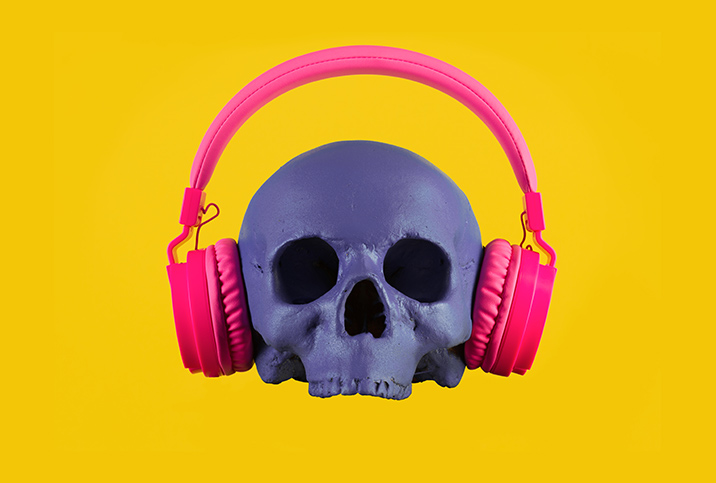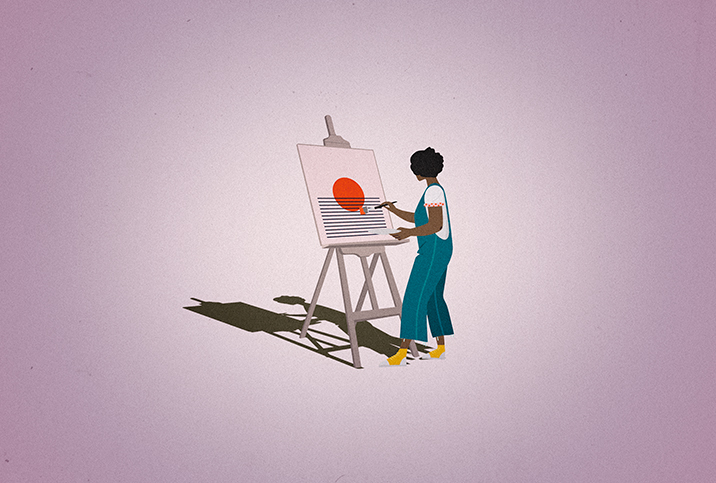Caring for Your Mind During Men's Mental Health Awareness Month

Key Points
- Mental health issues can affect all facets of a person's life, including their physical well-being and relationships.
- Men's Mental Health Awareness Month highlights the fact that many men experience mental illness but don't get the care they need.
- The month of June is also an ideal opportunity for men to talk about their mental health struggles and encourage others to do the same to reduce stigma and shame.
How men manage mental health issues can significantly affect their overall well-being, as well as their families and communities. Although discussions about mental health are now part of everyday conversation, many men still struggle to seek help when they need it most.
The month of June is Men's Mental Health Awareness Month. It highlights how important it is for men to care for their minds as much as their bodies—and helps link men with the resources to do so.
Why do we need a mental health month for men?
Men's Mental Health Awareness Month is more important now than ever. Research suggests there's a growing number of men—including younger men—experiencing depression and other mental health issues.
"Nearly one in 10 men experience depression or anxiety, yet less than half seek treatment due to societal expectations and stigma," said Noah Kass, Ph.D., LCSW, a psychotherapist in New York City.
"Men also die by suicide four times more frequently than women, with those ages 45-64 at exceptionally high risk," he added. "Substance misuse is also common."
"Often, how men handle mental health struggles only serves to exacerbate them," said Victor Armstrong, MSW, vice president for health equity and engagement at the American Foundation for Suicide Prevention, based in New York City.
"Men tend to suppress their emotions and avoid discussing their struggles, partly because men are socially conditioned to avoid being sensitive or vulnerable. The pressure to appear tough and self-reliant often prevents them from acknowledging their issues, let alone seeking help. Additionally, society often reinforces the use of unhealthy coping mechanisms, such as drinking, which can make matters worse," Armstrong said.
Armstrong noted that examining these behaviors and ideas with self-compassion is crucial to healing.
"It's a foreign language almost to be able to speak about their emotions or just what's going on inside," said Paul Losoff, Psy.D., founder and clinical psychologist at Bedrock Psychology Group in Northfield, Illinois.
"It's a very scary endeavor, but to have the courage to be vulnerable is a sign of strength," Losoff said.
What kind of therapist do I need?
There are several types of therapy and therapeutic modalities, from psychodynamic or cognitive behavioral therapy (CBT) to art therapy and ketamine therapy.
The choice may feel overwhelming, but starting by asking yourself why you're seeking support is helpful, Losoff said.
For example, do you need support for specific mental health issues, or are you looking to address more general thoughts and feelings in greater depth? Researching different kinds of therapy can help.
CBT can be helpful for people with symptoms of depression, anxiety or substance use disorder, suggested a 2020 report.
People with post-traumatic stress may benefit from eye movement desensitization and reprocessing (EMDR) therapy, the American Psychological Association (APA) shared.
"Every individual's experience is different, and someone may benefit from one type of counseling more than another," Armstrong said.
"It can be helpful to search for a counselor who is knowledgeable about a number of different methods—whether that's Cognitive Behavioral Therapy-Suicide Prevention, Dialectical Behavior Therapy, Attachment-Based Family Therapy or Prolonged Grief Therapy. A therapist can also help determine the type of counseling that may be best suited for you."
Armstrong recommended that once you know the type of therapy you're interested in, you might ask friends and family members for recommendations or ask your primary care physician for a referral.
Hospitals, clinics, community centers, private practices and organizations maintain directories. These include:
Before selecting a therapist, check out their background and specialties. Although most therapists can help with various challenges, many have specific specialties.
For instance, one therapist might specialize in working with new parents, while another has extensive experience treating eating disorders and exercise addiction while another specializes in working with the LGBTQIA+ community.
"It's important to ask the following questions. 'What areas do you specialize in, and what are your potential approaches to the concerns or challenges that I'm faced with,'" said Rashad Mills, LCPC, a counselor at Open Mind Health, based in Baltimore, Maryland.
"These questions can be vital to ensure the therapist and the client are a good fit," Mills said.
It's OK for people of color to ask clinicians if they have experience working with people of color or if they have cultural competency training, Armstrong said.
"It's important to determine if a therapist's personality is a good fit," said Frank Anderson, M.D., psychiatrist and author of "To Be Loved: A Story of Truth, Trauma, and Transformation," based in Concord, Massachusetts
Many therapists offer free 15-minute consultations to help you decide if you are a good fit for each other.
"The better the connection, the more work can be accomplished in therapy," he said.
Of course, if you start working with one therapist and decide your therapist is not a good fit, you can always change to another.
Before you do, determine if you are therapist hopping because the work became difficult and hard or if there is a personality clash.
If you feel unheard, it's okay to break up with your therapist.
Recommended
- Body and Mind—Linking Mental Health to Good Sex: The best sex isn’t just physical—it also comes from the mind.
- Managing Your Expectations at the Psychiatrist's Office: Why do we expect our psychiatrists to be miracle workers?
- Can You Eat Your Way to Happiness?: Improve your mood with nutrition essentials for mental health.
What to talk about in therapy?
If you're not sure what to talk about in therapy, your counselor can help start the conversation.
"Sessions will vary depending on your situation and therapist, but many counselors start by asking some specific questions to better understand you and your background," Armstrong said.
"After that, it's up to you," Losoff said.
Some patients want to discuss certain topics, which can range from conflicts with family members to their golf game, whereas others want to talk about their feelings and experiences more generally.
"It's not always easy to know what to say," Armstrong said. "To help with that, ask yourself why you're in therapy, what you want to get out of it and how you want to feel."
With that in mind, Armstrong suggested the following topics as helpful conversation starting points:
- Coping skills
- Issues like relationship problems or work pressures
- Life goals
- Mood changes or patterns
- Traumatic or stressful events
"Talking about these things can help reduce stress, improve mood, work through specific problems, build stronger and healthier interpersonal relationships and help you see the future more clearly, all of which can improve mental health," Armstrong said.
What are depression symptoms in men?
Symptoms of depression can include the following, according to Mayo Clinic:
- Difficulty sleeping or sleeping too much
- Fatigue
- Feelings of sadness, hopelessness or emptiness
- Not getting pleasure from activities you once enjoyed
"There's no clear evidence depression affects men and women differently. However, symptoms may manifest in distinct ways, potentially because of social conditioning and the roles men are expected to play," Armstrong said.
"Men tend to externalize their feelings where women are more internal," Anderson said. "Men are more likely to become angry, aggressive, controlling, violent and critical when they are depressed."
Some behaviors that may be symptoms of depression in men include the following, suggested the Mayo Clinic:
- Controlling, violent or abusive behavior
- Difficulty getting along with others
- Escapism, including spending an unusual amount of time at work or on sports or games
- Out-of-control irritability or anger
- Physical ailments, including headaches, digestive problems and pain
- Risky behavior, including reckless driving
- Substance misuse
Although depression doesn't cause suicide, it can contribute to suicidal ideation.
If you're experiencing depression symptoms or know someone who is, reach out for help. There are many good online resources including the American Foundation for Suicide Prevention.

What are 5 simple things you can do to boost your mental health?
The following steps, if carried out consistently, may help improve your mental health:
1. Find community
Social ties are crucial for mental health and overall well-being, indicated a 2024 report.
"Having people you can lean on, including family, friends and peers, can help you feel less alone," Mills said.
"Here, men's groups, often headed by community organizations or therapy practices, can be beneficial," Losoff said.
2. Get professional help
"Many men don't seek help until they hit a breaking point or a loved one asks them to," Losoff said.
It's never too late to get help. Reaching out to a counselor sooner rather than later can help you get back to feeling more like yourself again.
3. Minimize substance use
"Decreasing alcohol consumption has also been shown to be beneficial," Anderson said. "Alcohol acts as a central nervous system depressant and contributes to symptoms and feelings of depression."
4. Reduce stress
There's good stress and bad stress. Too much of the latter can contribute to or exacerbate problems such as depression, burnout and anxiety.
Along with exercise and sleep, practicing relaxation techniques such as meditation and breathing exercises may help.
5. Take care of your body
"Drinking enough water, eating healthy foods, prioritizing sleep and regularly exercising can all help nourish your mind and body," Kass said.
What is a mental health day?
"A mental health day is an opportunity to take time away from responsibilities to do things that help you recharge and enhance your emotional well-being," Mills said.
A mental health day can be just as important as traditional sick days you might take if you have a cold or flu. They can look like whatever you want them to—whether that's going on a hike, going on a fun shopping trip or simply lounging on the sofa.
"Taking a break from social media, spending time in nature, doing creative activities and exercising can help you make the most of this time," Armstrong said.
What is the men's mental health color?
The color associated with Men's Mental Health Awareness Month is green.
"The color has several symbolic meanings that relate to mental health awareness, including hope and support," Armstrong said.
"Green is also a symbol of new life and growth and represents the idea that people who face mental health struggles can overcome them and experience healing and recovery."
The bottom line
Men's Mental Health Month is a chance to reflect on your emotional well-being and address challenges. It's also a chance to recognize the importance of your access to mental health care and advocate for positive changes in your community.
If you're experiencing symptoms of depression, anxiety or stress or need to talk to someone, help is always available.
If you're in a mental health crisis, reach out to your healthcare provider or call 911.
For free and confidential support for anyone in suicidal crisis or emotional distress, call the 988 lifeline 24/7, anywhere across the United States. Chat online at 988lifeline.org or reach the Crisis Text Line by texting MHA to 741741.


















